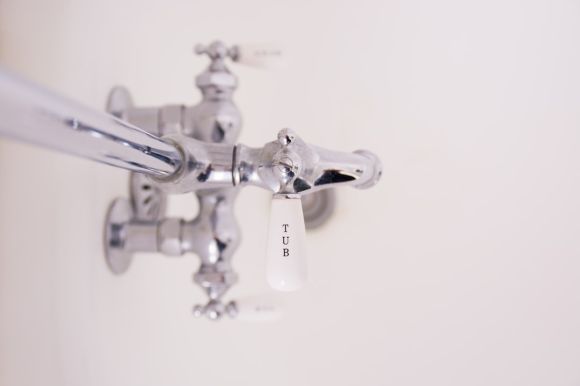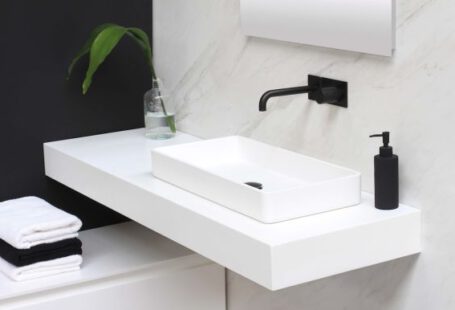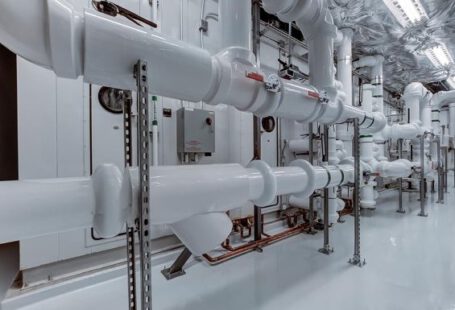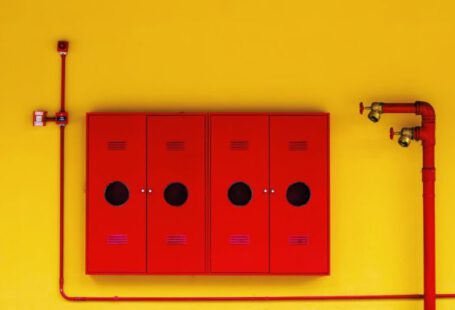Pipes play a crucial role in our day-to-day lives, supplying water and carrying waste away from our homes and buildings. However, like any other component of a plumbing system, pipes have a limited lifespan and may need to be replaced at some point. The question then arises: how often should pipes be replaced? In this article, we will explore the factors that influence pipe longevity and provide some guidance on when it might be time to consider pipe replacement.
Understanding Pipe Lifespan
Before delving into the frequency of pipe replacement, it is essential to understand the typical lifespan of different types of pipes. The longevity of pipes can vary significantly depending on various factors, including the material they are made of and the conditions they are exposed to.
1. Copper Pipes
Copper pipes are known for their durability and longevity. On average, copper pipes can last anywhere from 50 to 70 years or even longer with proper maintenance. However, factors such as water quality, pH levels, and corrosive substances can influence their lifespan.
2. Galvanized Steel Pipes
Galvanized steel pipes, once a popular choice, have a lifespan of approximately 20 to 50 years. Over time, these pipes are prone to rust and corrosion, leading to reduced water flow and potential leaks.
3. PVC Pipes
PVC pipes, commonly used for drainage and waste systems, have an estimated lifespan of 25 to 40 years. Their resistance to corrosion and chemicals makes them a reliable choice for many applications.
4. PEX Pipes
PEX pipes, a newer addition to the plumbing industry, have gained popularity due to their flexibility and resistance to freezing. These pipes can last up to 40 years or more, making them a durable option for both residential and commercial plumbing systems.
Factors Influencing Pipe Replacement
Now that we have an understanding of typical pipe lifespans, let’s explore the factors that may prompt the need for pipe replacement.
1. Age of the Pipes
As pipes age, they become more susceptible to wear and tear. If your property has older pipes, it is important to monitor them closely for signs of deterioration, such as leaks, discoloration, or reduced water pressure. Regular inspections by a qualified plumber can help identify potential issues before they escalate.
2. Water Quality
The quality of the water running through your pipes can impact their longevity. Hard water, which contains high levels of minerals, can lead to mineral buildup and corrosion over time. If you live in an area with hard water, it may be necessary to replace pipes more frequently.
3. Environmental Factors
Environmental conditions, such as extreme temperatures or soil erosion, can affect the integrity of your pipes. Freezing temperatures, for example, can cause pipes to expand and contract, leading to cracks or bursts. Similarly, soil movement or shifting can put stress on underground pipes, potentially causing them to fail.
When to Consider Pipe Replacement
While there is no fixed timeline for pipe replacement, there are some signs that indicate it may be time to take action:
1. Frequent Leaks
If you are experiencing frequent leaks, even after repairs, it may indicate that your pipes are in poor condition and need replacement.
2. Discolored Water
Discolored water can be a sign of rust or corrosion within your pipes. If flushing the system does not resolve the issue, it may be time to consider replacing the affected pipes.
3. Reduced Water Pressure
If you notice a significant decrease in water pressure throughout your home or building, it could be a sign of pipe deterioration or blockage. A professional plumber can assess the situation and determine if replacement is necessary.
In conclusion, the frequency of pipe replacement depends on various factors, including the type of pipe, its age, water quality, and environmental conditions. Regular inspections and prompt action in response to signs of deterioration can help ensure the longevity and efficiency of your plumbing system. Consulting with a professional plumber is essential to determine the best course of action when considering pipe replacement. Remember, proactive maintenance is key to avoiding costly repairs and ensuring the smooth functioning of your plumbing system for years to come.



